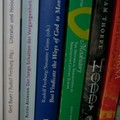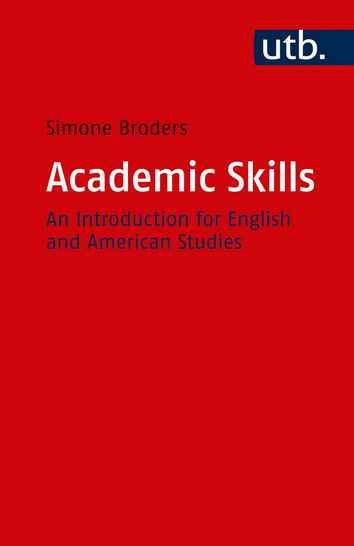March 08, 2016
Learning to Read (And Remember What You Have Read) - Seven Foolproof Strategies

Of course, you already know how to read, no matter what your preferred reading material is. Whether you will remember what you read this semester when you take your final exams, in two or three years' time, is, however, an entirely different matter.
Most of the
courses you attend at university will conclude with an
exam in which we will NOT ask you to reproduce knowledge
learned by heart, but to SOLVE PROBLEMS – a skill you
will need to practice.
An important prerequisite is to read the
primary texts before the course meeting in which they
are discussed and remember to bring them to class. This
sounds simple, but is not always easy to keep up under
the pressure generated by a tight schedule, a student
job, exams, bureaucracy, and other obligations you may
have.
I recommend to start reading the longer
primary texts in the lecture-free time preceding the
class. A frequent objection raised by my students is:
"But if I read this 300-page-book during the summer, I
will have forgotten all about it when we start
discussing it in December!"
A good memory for details is not genetic or
a matter of talent. The following strategies will help
you remember more easily what you have just read.
Seven Foolproof Strategies
-
Buy a good edition. It is tempting to download a file of a classical novel, say, Mary Shelley's Frankenstein, on your e-reader, phone, or tablet for free when a critical edition by a good publisher is almost twenty euros. When you want to work with the text intensely, however, it may be well worth the investment.
- Start early and create a calm atmosphere for reading. Studies show that a relaxed environment helps long-term understanding. If you read the books that will be discussed in your seminar under pressure, on the train to the next course meeting or while grabbing a quick bite at the cafeteria, you will remember less of the text
- Take notes. Reading alone is just a superficial way of processing information. Take notes on the plot while you are reading, write down anything that strikes you as interesting or unusual. This will help you remember your reading experience and your first impressions when talking about the text in class. If you are a visual type, you may want to use markers or post-its in different colours, however, do not replace notes with post-its – studies show that copying a quotation to your notes is more efficient as a learning strategy than highlighting the same quote with a marker..
- Watch plays. If you have a chance to go and see a play you have read in class, do so by all means. This way, the content of the play can enter your brain by different channels, which will help you remember. Be careful, though, not to substitute your reading of the play with streaming the film. Every staging is an interpretation in itself, leaving out some elements, adding others.
- Read poems aloud – or find a recording by a professional actor or actress. Rhythm and sound are extremely important for understanding poetry.
-
Participate in course discussion. Share your thoughts. Ask questions. Reflecting, rephrasing and looking at the text from different angles will help your brain form the connections you need for the knowledge to sink in. Remember: There are no "right" or "wrong" interpretations. Do not be too shy to speak. In a literature class, no one will criticize you for your accent or a colloquial expression you might use in course discussion. Start with a resolution to speak at least once per course meeting.
- Keep reading! Even if the book your course convenors enthuses about is not your cup of tea, chalk it off as a new experience. Maybe you will find yourself reading the same text with different eyes in ten years' time. Reading experiences change with time. The more you read, the more a text that seemed cryptic once will make sense.
- BACK TO TEACHING - MAIN
NEXT:
Free E-Book or Expensive Critical Edition - Why You
Should Even Bother

It is tempting to download a file of a
classical novel, say, Mary Shelley's Frankenstein, on
your e-reader, phone, or tablet for free when a
critical edition by a good publisher is almost twenty
euros. An e-text is searchable, easy to access. When
you want to work with the text intensely, however, an
annotated edition with an authoritative text may be
well worth the investment. This article will tell you
how to get the best of both worlds.
Need more tips for your studies?
Simone Broders, Academic Skills. An Introduction for
English and American Studies (Fink/UTB, 2020).
 An introduction to academic
skills which leaves nothing to be desired – designed for
students of English and American Studies, this companion
will guide you through research, presentation, quoting
and style, as well as the composition of essays and term
papers. Acquiring these competences will not only equip
you for the expectations of university studies but will
also enhance your communication skills and promote your
ability to think critically and independently.
An introduction to academic
skills which leaves nothing to be desired – designed for
students of English and American Studies, this companion
will guide you through research, presentation, quoting
and style, as well as the composition of essays and term
papers. Acquiring these competences will not only equip
you for the expectations of university studies but will
also enhance your communication skills and promote your
ability to think critically and independently.
The book is rounded off by strategies for exam preparation and plenty of practice exercises complete with solutions.
Look inside





